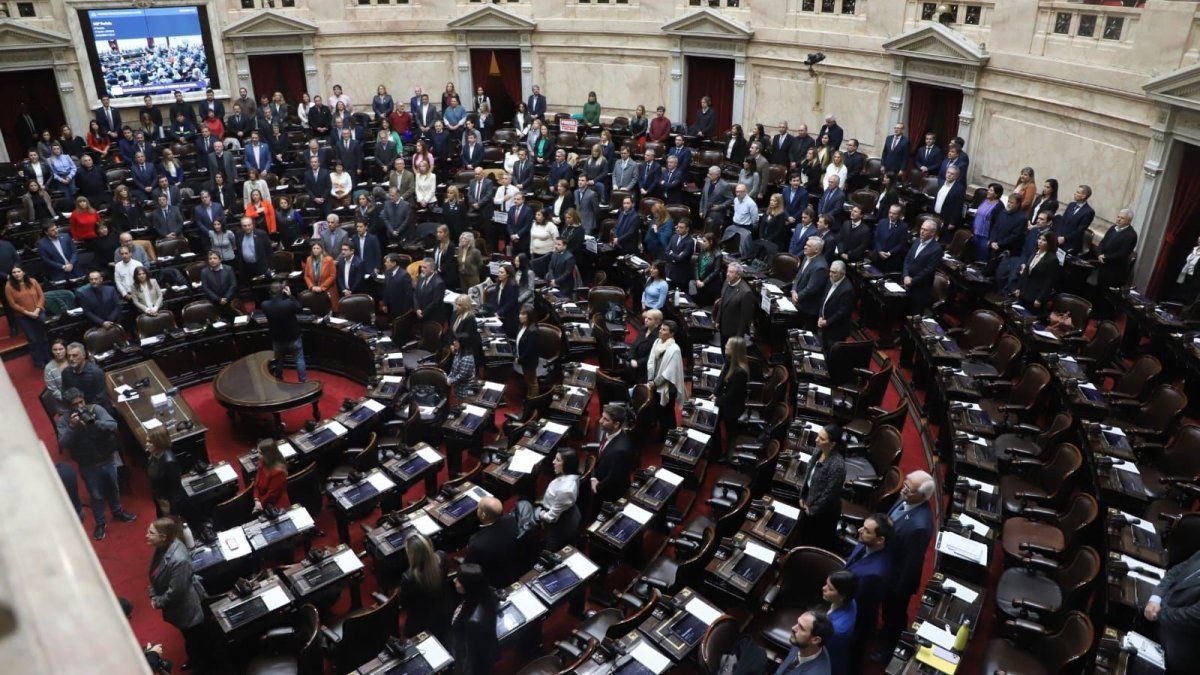He “Draft Law on Palliative and Relevant Fiscal Measures”the institutional name of the fiscal package, leads us to put white on black about what the true implications are for provincial finances.
His eventual sanction in the Chamber of Deputies this week, will have a negative impact on federalism, beyond the elaborate constitutional framing that they want to give it to justify the rejection of the Senate It was not final.
On repeated occasions It is stated in the media and in Casa Rosada offices that “the fiscal package benefits the provinces”. Looking at the data that makes up this text, it emerges that it is a fallacy that is spread seeking confusion or trying to install a new story.
Maybe you make the mistake of adding apples and pears. In that case, it would be a very serious error given the permanent budgetary impact that this project generates. Therefore, we will focus on analyzing the impact using data provided by the Congressional Budget Office -CPO-which has produced several reports on the subject.
We will focus on the changes that imply permanent modifications in the tax structure, especially the effects of increasing resources via Income Tax and sharply reduce the tax rates on the Personal property. On the other hand, the “one-time” impacts, such as money laundering, which merit a different analysis. Thus, it can almost be limited to the management of a “stock” of resources versus other types of accumulations.
Thus, following the values provided by the OPCmaintaining its criterion for nominal GDP, the following intertemporal impact, expressed in millions of pesos, on total collection (Nation and provinces):
Table 1.jpg
Before making any consideration, we clarify that we only carry out a proration of the impacts in 2024 of the Income Tax and the Monotributoand we consider a criterion of exhaustion of the Property Transfer Tax.
Beyond the aberrant distribution issue that we pointed out, the table also shows that in a government management The provinces lose resources of almost 5 billion pesos. If the objective is to destroy the State by definancing it, it seems that we are on the right path.
But to consolidate this hypothesis, let’s look at the loss that is consolidated as structural from 2028 inclusive: 1.6 trillion pesos less per yeara 0.27% of GDP reduction in the global tax burden of a permanent nature, but with a decrease in the property tax burden of 0.61% and an increase of 0.35% in the tax burden suffered by workers and monotributistas.
The loss of resources is notorious and systematic, and is addressed up to 85% by provincial jurisdictions, leaving a permanent loss of resources of more than one billion pesos per year. The following table shows the impact on the collection of only the provinces:
Table 2.jpg

Of course, it is unavoidable to mention the blow to consumption that means lowering the purchasing power of the salary, by adding more than 1 million new ones reached by the Income Tax.
A new blow to fiscal federalism
It seems that the illegal appropriation of non-automatic transfers to the provinces, crudely simulated through the lying story that “they are discretionary resources…” is not enough. Another lie: the only discretionary thing that the President has are the President’s own resources. National state. He cannot violate the Federal Tax Sharing law.
It seems to be overlooked that, at the time of the current federal distribution system coming into effect in 1988, the provincial states received 58% of the co-shareable resources. Today that percentage is received by the National State, in a clear reversal of federalism.
Without a doubt it is necessary discuss a new co-participation scheme. And it will only live up to the federal imprint that the National Constitution gives to the Argentine political system if the provinces regain what they lost.
They are the provinces that, in their vast majority, provide the basic public services of the State. Health, education, security and justice are the responsibility, for the most part, of the provincesin case jointly with the municipalities.
From that need, the First step is to reject the fiscal package.
*Guido Alberto Bisterfeld is Minister of Finance of the province of La Pampa.
Source: Ambito
David William is a talented author who has made a name for himself in the world of writing. He is a professional author who writes on a wide range of topics, from general interest to opinion news. David is currently working as a writer at 24 hours worlds where he brings his unique perspective and in-depth research to his articles, making them both informative and engaging.




